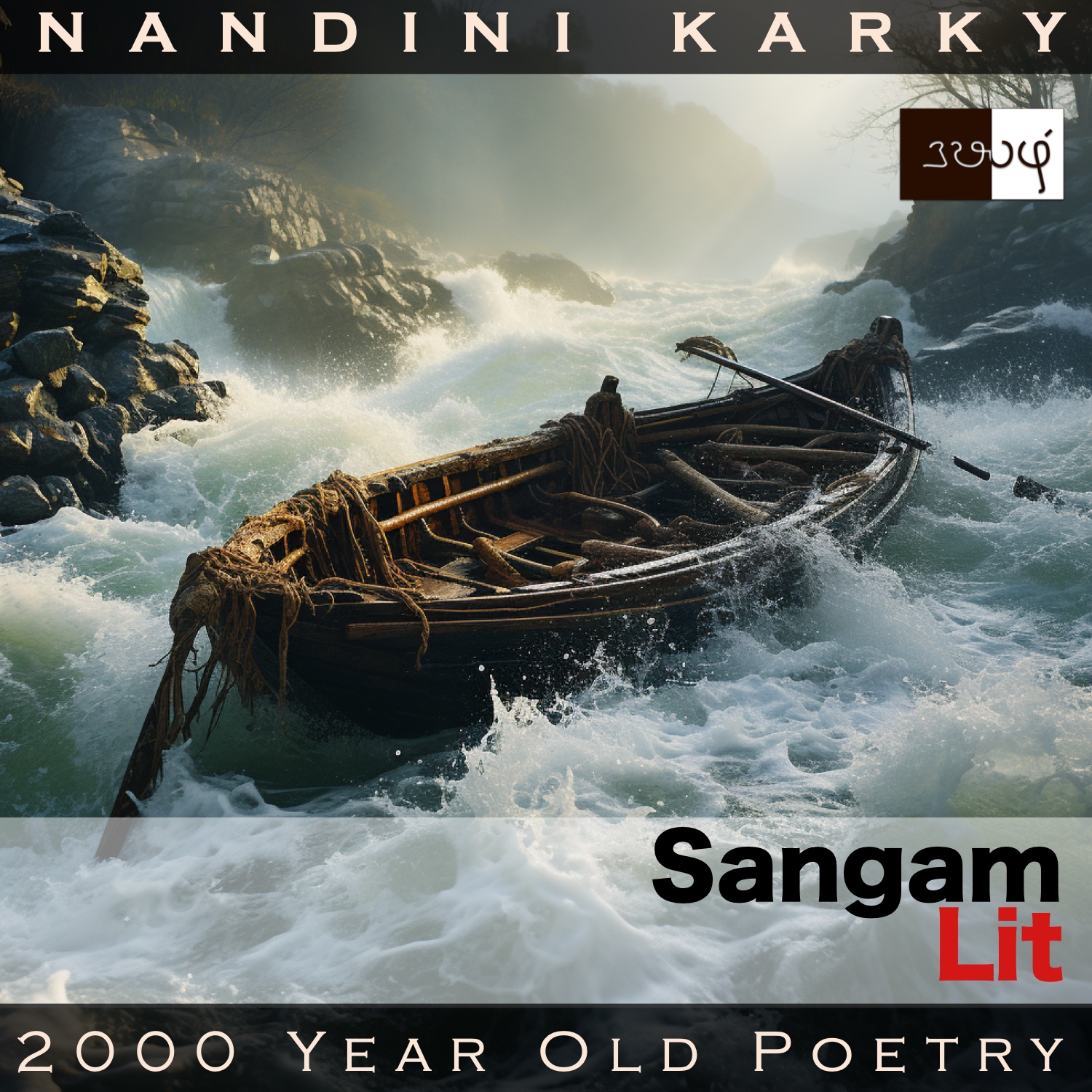Podcast: Play in new window | Download
Subscribe: Apple Podcasts | Spotify | Amazon Music | Android | iHeartRadio | Email | TuneIn | RSS | More
In this episode, we perceive a timeless thought about this world and our presence here, as depicted in Sangam Literary work, Puranaanooru 192, penned by the poet Kaniyan Poonkundranaar. The verse is situated in the category of ‘Pothuviyal Thinai’ or ‘Common Themes’ and distills the essence of what life and living is.

யாதும் ஊரே; யாவரும் கேளிர்;
தீதும் நன்றும் பிறர் தர வாரா;
நோதலும் தணிதலும் அவற்றோரன்ன;
சாதலும் புதுவது அன்றே; வாழ்தல்
இனிது என மகிழ்ந்தன்றும் இலமே; முனிவின்,
இன்னாது என்றலும் இலமே; ‘மின்னொடு
வானம் தண் துளி தலை இ, ஆனாது
கல் பொருது இரங்கும் மல்லல் பேர் யாற்று
நீர் வழிப்படூஉம் புணை போல், ஆர் உயிர்
முறை வழிப்படூஉம்’ என்பது திறவோர்
காட்சியின் தெளிந்தனம் ஆகலின், மாட்சியின்
பெரியோரை வியத்தலும் இலமே;
சிறியோரை இகழ்தல் அதனினும் இலமே.
Famous words from three thousand years ago that have echoed aloud in the congregations of the United Nations time and again. The poet’s words can be translated as follows:
“Every town is our own; Every person therein is our kin; Good and evil come not from others; Suffering and remedy are like that too; Death is nothing new either; Thinking life is pleasant, we needn’t feel happy; Thinking it is disagreeable, we needn’t feel hate either; The wise have seen and said, ‘As skies flash with lightning and pour down cool drops of water, without restraint, dashing against rocks, descends the wild and powerful river. Akin to a raft that floats on its waters, rare life too follows the path of destiny’. Gaining understanding from this vision, we need not look up in awe at people who are great; More than that, we need not look down with derision at people who are lowly!”
A verse that gives me special joy to delve deeper into. The poet declares that he does not belong to any one place for every place in the world, he sees as his own and not just that, all the people in all those places, he sees as his kith and kin. A moment to consider what an elevated thought this is, considering it was from a time of narrow thinking, when people saw cultures different from themselves as barbaric and inferior. Here’s a poet standing up and saying no matter where we come from, you and I are of one family. No wonder people stop with these words, not even wanting to go further, for universality of the human race is pronounced with such conviction and clarity, millennia ago.
Still, let’s persist and explore the other thoughts presented here. Next, the poet moves on to good and evil and says that these do not come from others, and similarly, your angst and cure too follow the same principle. What does he mean by that? That we can neither blame others for whatever happens to us nor wait for them to solve our problems. It’s a subtle thought nudging us to take responsibility for our lives. Speaking of life, the poet declares that death is nothing new and not to be feared. At the same time, life need not be seen either as a thing of boundless joy or limitless misery. In that, he means life is not to be liked or disliked but simply to be lived. To etch this philosophy, he talks about a raft being pushed hither and thither in the bounding waves of a wild river, filled by the downpour of the skies, as it dashes against rocks and keeps moving on. He mentions this is what life is, as it bobs along the waves of fate. Considering such is life, the poet concludes with the words that there is no need to be awed by the famous, and even more important than that, there is no need to scorn the insignificant.
A poet who walked his talk for he never sang in praise about any king or patron but has etched his name forever with this single verse abstracting the ethics of living. Oneness of humanity, taking responsibility for life, finding the middle path and seeing everyone around with the same eyes are some of the noble ideals sung about here. If a Tamil person has to choose a verse from the Sangam era that fills them with pride, I think this would be the song with most votes. However, it’s not the Tamils alone who have the right to feel that pride and joy, for this poet so long ago, unites us all as one as he opens with that line ‘Yaathum Oore Yaavarum Kelir’ – Words which can be a motto of peace for the world entire!




Share your thoughts...